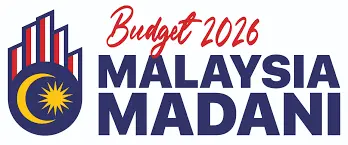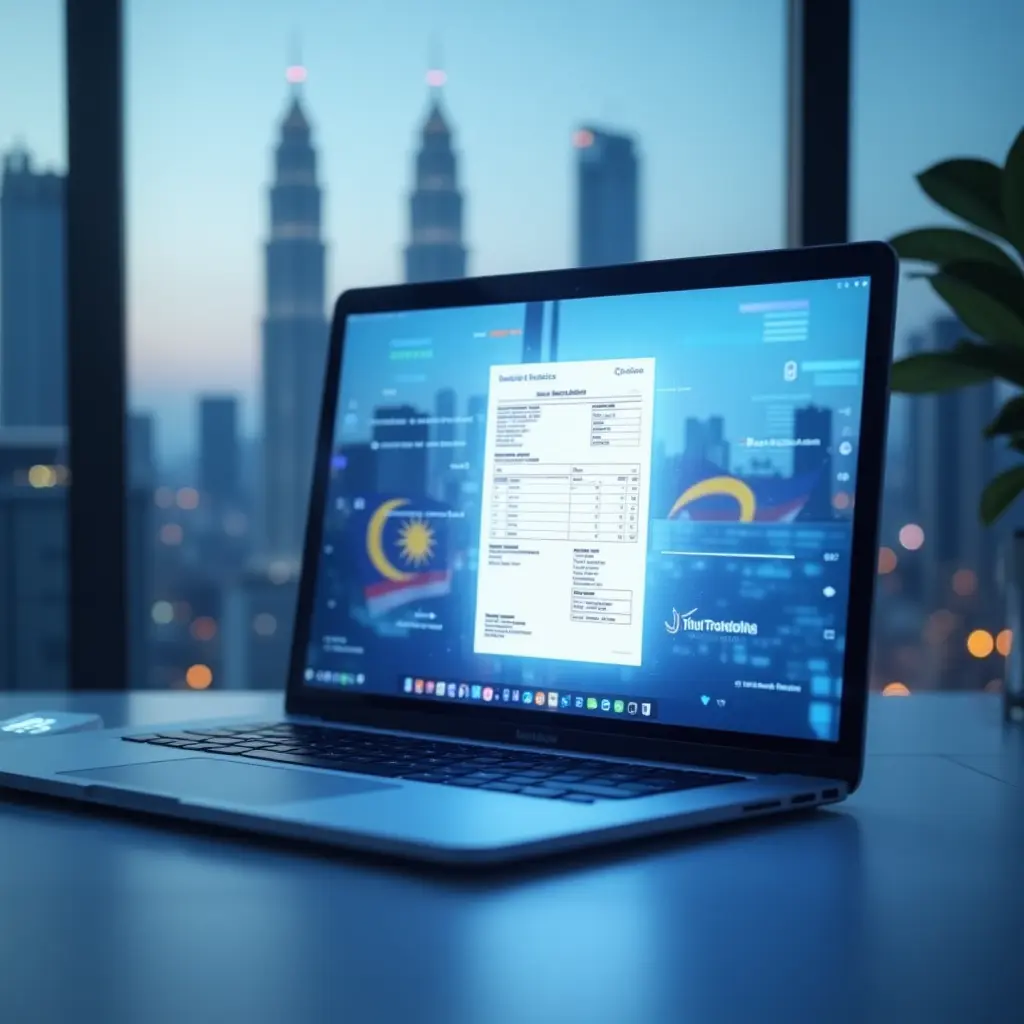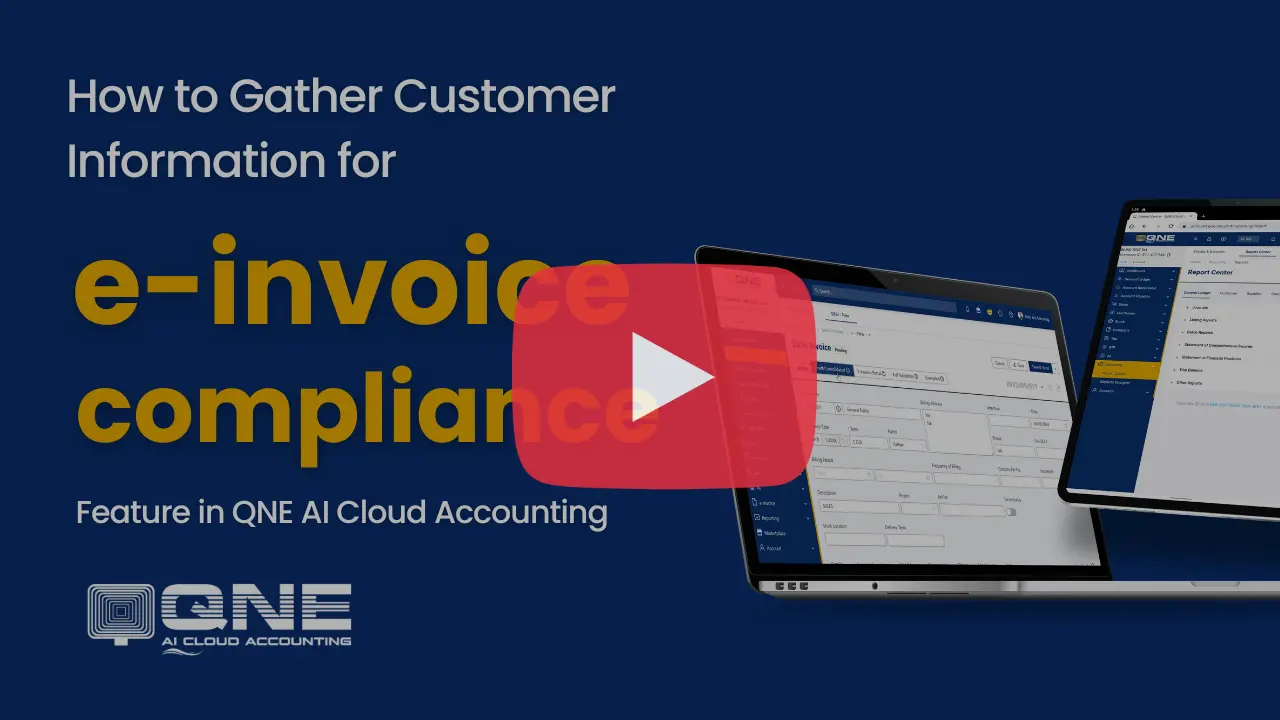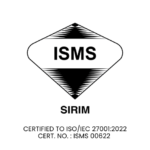Malaysia Budget 2026 Highlights: Driving Growth and Leading the AI Nation Vision by 2030
Malaysia Budget 2026, tabled on 10 October 2025 by YAB Dato’ Seri Anwar Ibrahim, Prime Minister and Minister of Finance, is the first under the 13th Malaysia Plan and the fourth MADANI Budget, themed “The Rakyat’s Budget.” The Prime Minister emphasized that Budget 2026 is more than a ledger of allocations; it is a commitment to fiscal resilience, inclusive growth, and institutional reform under Ekonomi MADANI, charting a path toward long-term sustainability and digital transformation for Malaysia.
With a record RM470 billion in total public expenditure, up from RM452 billion in 2025, this MADANI Budget introduces transformative initiatives ranging from AI training tax deductions to mandatory e-invoicing implementation, positioning Malaysia as a competitive player in the digital economy.

Key Takeaways: Malaysia Budget 2026 at a Glance
- RM470 billion total budget allocation, the highest in Malaysian history
- 50% tax deduction for SME AI and cybersecurity training certified by MyMahir National AI Council
- RM30 billion in government-backed SME loans through SJPP Guarantees
- E-invoicing mandatory implementation by 2026 for all businesses
- RM5.9 billion investment in AI Nation 2030 R&D and commercialization projects
- Carbon tax introduction in 2026 targeting iron, steel, and energy sectors
- RM2 billion Sovereign AI Cloud infrastructure by MCMC to accelerate digital transformation
- Fiscal deficit projected to narrow to 3.5% of GDP, demonstrating fiscal discipline
How Does Malaysia Budget 2026 Support SME Growth and Competitiveness?
Malaysia Budget 2026 for SMEs and startups focuses on innovation and competitiveness, recognizing that micro, small, and medium enterprises (MSMEs) are central drivers of economic growth. With RM470 billion in total public expenditure, the government has allocated substantial resources to empower SMEs through equity financing, digitalisation grants, and Malaysia SME incentives 2026.
The budget introduces three major funding mechanisms designed to support businesses at different stages of growth. The Strategic Co-Investment Fund (CoSIF) provides RM200 million to support SMEs and mid-tier companies through equity financing, enabling businesses to scale operations and access capital markets. The NIMP Industry Development Fund allocates RM180 million specifically for high-impact sectors including artificial intelligence, semiconductor manufacturing, and digital industries, aligning with Malaysia’s ambition to become a regional technology hub. Additionally, the SJPP Guarantees program offers RM30 billion in government-backed SME loans, with expanded coverage for micro-entrepreneurs who often face challenges accessing traditional financing.
These initiatives position SMEs as central drivers of growth, leveraging SME digitalisation grants and Malaysia SME incentives 2026 to accelerate business transformation. The Bank Negara Fund for SMEs has also shifted from primarily providing loans to offering guarantee-based support, targeting underserved segments and businesses involved in high-impact activities such as digitalisation, automation, innovation, and the green transition.
What Are the New Tax Incentives and Updates in Malaysia Budget 2026?
Malaysia Budget 2026 tax updates for businesses introduce a range of incentives designed to promote digital transformation, upskilling, and sustainable business practices. Fiscal discipline remains a cornerstone of the MADANI Budget, with the deficit projected to narrow to 3.5% of GDP in 2026, supported by enhanced revenue collection and targeted reforms under the Public Finance and Fiscal Responsibility Act 2023 (FRA).
One of the most significant tax incentives is the 50% additional tax deduction for SMEs on AI and cybersecurity training programs. This deduction applies to training certified by the MyMahir National AI Council for Industry (NAICI), which is jointly led by Talentcorp and MyDigital. This initiative directly supports the government’s AI training Malaysia objectives and encourages businesses to invest in workforce upskilling and reskilling programmes, ensuring employees are equipped with the skills needed for an AI-driven economy.
The budget also introduces a new Outcome-Based Incentive Framework for SMEs, offering targeted tax incentives for businesses that adopt automation, digitalisation, and sustainability practices. This framework rewards measurable business improvements and aligns with fiscal policy reform goals under Ekonomi MADANI. Additionally, businesses investing in green technology can benefit from the Green Investment Tax Allowance (GITA), which has been extended to certified green technology adopters.
These tax measures are complemented by the government’s commitment to full e-Invoicing implementation by 2026, which will enhance efficiency, transparency, and compliance across all business sectors. Direct tax collection in 2026 is projected to increase by 5.8% to RM187.4 billion, reflecting stronger enforcement and improved tax administration by agencies such as MACC, PDRM, JKDM, and MyCC.
E-Invoicing Malaysia 2026: What Businesses Need to Know?
E-invoicing implementation is one of the most critical compliance requirements introduced in Malaysia Budget 2026. Starting in 2026, all businesses in Malaysia will be required to implement e-invoicing as part of the government’s broader digital transformation and tax administration modernization efforts. This mandatory initiative aims to improve transparency, reduce tax evasion, and streamline business-to-business (B2B) and business-to-government (B2G) transactions.
What is e-Invoicing?
E-invoicing is a digital system where invoices are issued, transmitted, and received in a structured electronic format that can be automatically processed by accounting systems. Unlike PDF invoices sent via email, e-invoices are machine-readable and must be validated by the Inland Revenue Board of Malaysia (LHDN) in real-time.
Who Must Comply?
The e-invoicing mandate applies to all businesses operating in Malaysia, regardless of size or sector. This includes sole proprietors, partnerships, SMEs, and large corporations. The phased rollout began in 2024 with large taxpayers, and by 2026, full implementation will be mandatory for all remaining businesses.

Key Deadlines and Implementation Timeline:
- 2024-2025: Large taxpayers and selected sectors (phased implementation)
- 2026: Full mandatory implementation for all businesses
Penalties: Non-compliance may result in fines and tax audits
How to Prepare for E-Invoicing?
- Upgrade your accounting software to support e-invoicing integration with LHDN’s MyInvois system
- Train your finance and accounting teams on e-invoicing procedures and compliance requirements
- Conduct a compliance audit to ensure your invoicing processes meet the technical specifications
- Register with MyInvois and complete the necessary onboarding steps with LHDN.
Businesses using modern cloud accounting solutions like N3 AI Accounting (formerly QNE AI Cloud Accounting) will benefit from seamless e-invoicing integration, ensuring compliance without disrupting daily operations. For more information on e-invoicing requirements, visit the Inland Revenue Board of Malaysia (LHDN) official website.
What is AI Nation 2030 and How Does It Transform Malaysia's Economy?
AI Nation 2030 is Malaysia’s strategic initiative to establish artificial intelligence as a national priority by 2030. The government is investing RM5.9 billion in cross-ministerial R&D and Commercialisation & Innovation (C&I) projects, offering 50% tax deductions for AI training certified by the National Artificial Intelligence Office (NAIO), and building a RM2 billion Sovereign AI Cloud to accelerate digital transformation for businesses and government agencies.
Malaysia is on track to achieve AI Nation 2030, with the upcoming National AI Action Plan 2026–2030 currently being developed by the National Artificial Intelligence Office (NAIO). This comprehensive plan will focus on AI governance, societal impact, and industrial adoption, building on the Artificial Intelligence Governance and Ethics (AIGE) framework launched in 2024.
Digital Minister Gobind Singh Deo highlighted the government’s commitment to this vision, stating: “What we want to do is to make sure Prime Minister Datuk Seri Anwar Ibrahim’s vision of creating an AI nation by the year 2030 is realised. You have to look at specific sectors; the key areas of course are government, society and the industries as well.”

Key AI Nation 2030 Initiatives:
Infrastructure and Talent Development:
- RM5.9 billion allocated for cross-ministerial R&D and Commercialisation & Innovation (C&I) projects
- Establishment of the National Artificial Intelligence Office (NAIO) to coordinate AI governance and policy
- Launch of the first Faculty of AI at Universiti Teknologi Malaysia (UTM) to develop local AI talent
- RM20 million dedicated to developing high-skilled AI talent through specialized training programs
- 50% additional tax deduction for SMEs on AI and cybersecurity training certified by NAIO and MyMahir National Council for Industry (NAICI)
Digital Infrastructure:
- RM2 billion Sovereign AI Cloud by the Malaysian Communications and Multimedia Commission (MCMC) to accelerate data infrastructure and AI adoption
- Malaysia Digital Acceleration Grant (RM53 million) for businesses adopting AI, blockchain, and quantum computing technologies
- Plans for a National Data Commission and National Data Bank to enhance data governance and accessibility
Private Sector Partnerships: These government initiatives are further strengthened by private-sector partnerships with global technology leaders including Microsoft, Google, and AWS. Microsoft, for example, is training 800,000 Malaysians through its AI for Malaysia’s Future program and establishing the Microsoft National AI Innovation Center. These collaborations position Malaysia as a regional AI hub and create a robust ecosystem for data governance, trusted digital infrastructure, and SME digitalisation, accelerating the country’s journey to AI-driven growth by 2030.
For more information on AI Nation 2030 initiatives, visit the National Artificial Intelligence Office (NAIO) official website.
How Does Malaysia Budget 2026 Empower Malaysians and Strengthen Livelihoods?
Malaysia Budget 2026 for households and communities demonstrates the government’s commitment to inclusive growth and ensuring that the benefits of economic progress reach all Malaysians. The budget includes expanded social assistance programs, targeted subsidies, and substantial investments in technical and vocational education and training (TVET).
The Sumbangan Tunai Rahmah (STR) and Sumbangan Asas Rahmah (SARA) programs have been expanded to provide direct cash assistance to low- and middle-income households, helping families cope with the rising cost of living. Targeted subsidies for essentials such as food, fuel, and energy are expected to save Malaysians approximately RM15.5 billion annually, ensuring that vulnerable communities are protected while the government continues its subsidy rationalization efforts.
A major highlight is the allocation of RM7.9 billion for TVET programs, which will equip over 3 million Malaysians with skills in high-demand areas including artificial intelligence, electric vehicle (EV) technology, and digital industries. This investment in human capital development ensures that Malaysians are prepared for the jobs of the future and can participate meaningfully in the digital economy.
Prime Minister Anwar stated: “After daring to go where others dared not, it is now time to return the fruits of the nation to the rakyat.” This sentiment underscores the government’s focus on ensuring that economic growth translates into tangible improvements in the quality of life for all Malaysians.
What Are the Green and Sustainability Initiatives in Malaysia Budget 2026?
Malaysia Budget highlights accelerate green growth through the National Energy Transition Roadmap (NETR) and Green Technology Financing Scheme 5.0 (GTFS 5.0) initiatives, positioning Malaysia as a leader in sustainable development and environmental responsibility.
The government has allocated RM1 billion to the GTFS 5.0 program, which provides up to 80% government guarantees for green projects, making it easier for businesses to access financing for renewable energy, energy efficiency, and sustainable technology investments. This initiative supports the transition to a low-carbon economy and encourages private sector participation in green innovation.
A landmark policy introduced in this budget is the Carbon Tax, which will be implemented in 2026 targeting high-emission sectors including iron, steel, and energy. This tax is designed to incentivize businesses to reduce their carbon footprint and invest in cleaner technologies, aligning Malaysia with global climate commitments and the Paris Agreement.
The Green Investment Tax Allowance (GITA) has been extended to certified green technology adopters, providing tax relief for businesses that invest in environmentally sustainable practices. Additionally, renewable energy projects under the Large Scale Solar 6 (LSS 6) program will add nearly 2GW of solar power capacity, supported by RM6 billion in private investment. These efforts complement AI Nation 2030 by promoting digitalisation and green innovation together, creating a synergistic approach to economic transformation.
For more information on Malaysia’s green initiatives, visit the Ministry of Natural Resources and Environmental Sustainability.
How Can Accounting Software Help Your Business Leverage Malaysia Budget 2026 Benefits?
As Malaysia embraces an AI-driven digital economy under the MADANI Budget and AI Nation 2030 vision, businesses need modern tools to navigate new compliance requirements, maximize tax incentives, and drive operational efficiency. N3 AI Accounting (formerly QNE AI Cloud Accounting) is designed to help businesses and SMEs adopt automation, AI solutions, and ensure compliance with Malaysia Budget 2026 requirements.

Smart Automation for SMEs
AI-assisted workflows automate invoicing, bank reconciliation, and financial reporting, reducing manual workload and minimizing errors. By leveraging SME digitalisation grants and business tax deductions available under Budget 2026, businesses can invest in automation tools that deliver immediate productivity gains and long-term cost savings.

Real-Time Financial Insights
AI-powered analytics provide real-time visibility into cash flow, profitability, and financial performance, supporting data-driven decision-making. This capability is essential for businesses navigating the complexities of fiscal policy reform and seeking to improve fiscal transparency and efficiency in line with Ekonomi MADANI principles.

Compliance and Tax Efficiency
QNE ensures businesses align with e-Invoicing Malaysia 2026 requirements, seamlessly integrating with LHDN's MyInvois system for real-time invoice validation. The platform also helps businesses track and claim the 50% AI training tax deduction and other new SME incentives, ensuring maximum tax efficiency and compliance with evolving regulations.

Partnering for an AI-Ready Future
QNE supports the AI Nation 2030 vision by helping businesses integrate AI and digital tools into their financial operations, enabling sustainable growth and competitive advantage in Malaysia's digital economy. With cloud-based accessibility, automated workflows, and intelligent insights, QNE empowers SMEs to thrive in an increasingly complex and technology-driven business environment.
Frequently Asked Questions (FAQS)
Who presented Malaysia Budget 2026?
Malaysia Budget 2026 was presented by YAB Dato’ Seri Anwar Ibrahim, the Prime Minister and Minister of Finance, on 10 October 2025 at the Dewan Rakyat in Kuala Lumpur. It marks the first budget under the 13th Malaysia Plan and the fourth under the MADANI framework.
What are the key highlights of Malaysia Budget 2026?
Some of the key highlights include:
- A record RM470 billion total spending — the largest in Malaysia’s history
- 50% tax deduction for AI and cybersecurity training
- RM30 billion in SME loan guarantees under SJPP
- RM5.9 billion for AI Nation 2030 projects
- Mandatory e-invoicing by 2026
- Introduction of carbon tax
- Green investment incentives and inclusive subsidies under Ekonomi MADANI
In short, it focuses on digital transformation, sustainability, and inclusive growth.
How does Malaysia Budget 2026 support SMEs and startups?
Budget 2026 gives SMEs a big boost through financing and digitalisation programs such as:
- RM30 billion in government-backed SME loans via SJPP
- RM200 million under the Strategic Co-Investment Fund (CoSIF)
- RM180 million from the NIMP Industry Development Fund for AI and digital sectors
- 50% tax deduction for certified AI training
These initiatives make it easier for SMEs to innovate, digitalize, and compete globally.
What are the new tax incentives under Malaysia Budget 2026?
There are several new incentives you should know:
- 50% extra tax deduction for SMEs on AI and cybersecurity training certified by the MyMahir National AI Council
- Outcome-Based Incentive Framework that rewards businesses adopting digitalisation and automation
- Green Investment Tax Allowance (GITA) for companies using sustainable or green technologies
These measures are designed to encourage innovation, upskilling, and environmental responsibility.
When will e-invoicing be mandatory in Malaysia?
E-invoicing becomes mandatory for all businesses by 2026. It’s being rolled out in phases, starting with large taxpayers in 2024–2025, and full compliance by 2026. Businesses that don’t comply may face penalties or audits, so it’s best to get ready early.
What is the carbon tax mentioned in Malaysia Budget 2026?
The carbon tax will start in 2026, targeting high-emission sectors such as iron, steel, and energy. Its goal is to reduce carbon emissions and encourage businesses to shift toward cleaner and more sustainable technologies.
What is the MADANI Budget?
The MADANI Budget aligns with Malaysia’s Ekonomi MADANI framework — focusing on fiscal resilience, inclusivity, and sustainability.
Budget 2026 is the fourth MADANI Budget, emphasizing digital growth and people-centered development.
How can I apply for SME digitalisation grants?
Businesses can apply for SME digitalisation grants through participating banks and agencies such as SME Corp Malaysia. You can also explore programs like the Malaysia Digital Acceleration Grant (RM53 million allocation) that help SMEs adopt AI, automation, and digital tools.
What is the MyMahir National AI Council?
The MyMahir National AI Council (NAICI), led by TalentCorp and MyDigital, certifies AI and cybersecurity training programs.
SMEs that take part in these certified programs can claim a 50% additional tax deduction under Budget 2026.
Who can claim the 50% AI training tax deduction?
SMEs that enroll employees in AI or cybersecurity training certified by NAICI and NAIO are eligible for this 50% additional tax deduction.
It’s a great way to upskill your workforce and reduce taxable income at the same time.
What’s the difference between CoSIF and NIMP funds?
- CoSIF (Strategic Co-Investment Fund) offers RM200 million in equity financing for SMEs and mid-tier companies.
- NIMP Industry Development Fund allocates RM180 million specifically for AI, semiconductor, and digital industries.
Both are designed to support business growth, but they target different types of funding needs.
How does Budget 2026 support green technology?
Budget 2026 supports the green agenda through:
- RM1 billion under the Green Technology Financing Scheme 5.0 (GTFS 5.0)
- Up to 80% government guarantees for green projects
- Extended GITA tax allowance for certified adopters
- LSS 6 solar initiative adding 2GW renewable energy capacity
These programs encourage companies to go green while remaining competitive.
What is the Sovereign AI Cloud?
The Sovereign AI Cloud, worth RM2 billion, is a major infrastructure project led by MCMC. It aims to boost data infrastructure, speed up AI adoption, and support digital transformation for both government and private sectors.
How much funding is allocated for education in 2026?
The Ministry of Education receives RM66.2 billion in Budget 2026 — the largest share among all ministries. This reflects the government’s focus on education, skills development, and workforce readiness.
How can QNE help my business align with Malaysia’s AI Nation Vision?
N3 AI Accounting (formerly QNE AI Cloud Accounting) helps businesses:
- Automate daily accounting tasks
- Stay compliant with e-invoicing regulations
- Track and claim AI training tax deductions
- Gain real-time financial insights through AI-powered analytics
With QNE, you can easily align your operations with Malaysia’s AI Nation 2030 vision and stay ahead in the digital economy.










